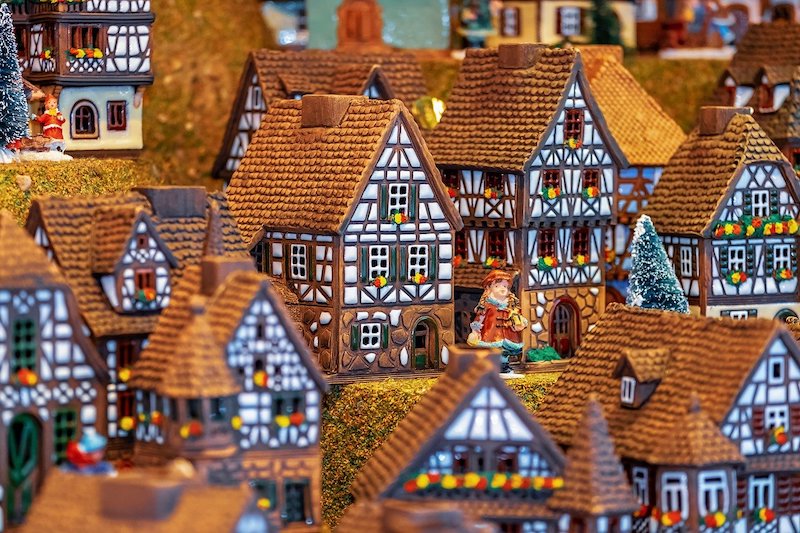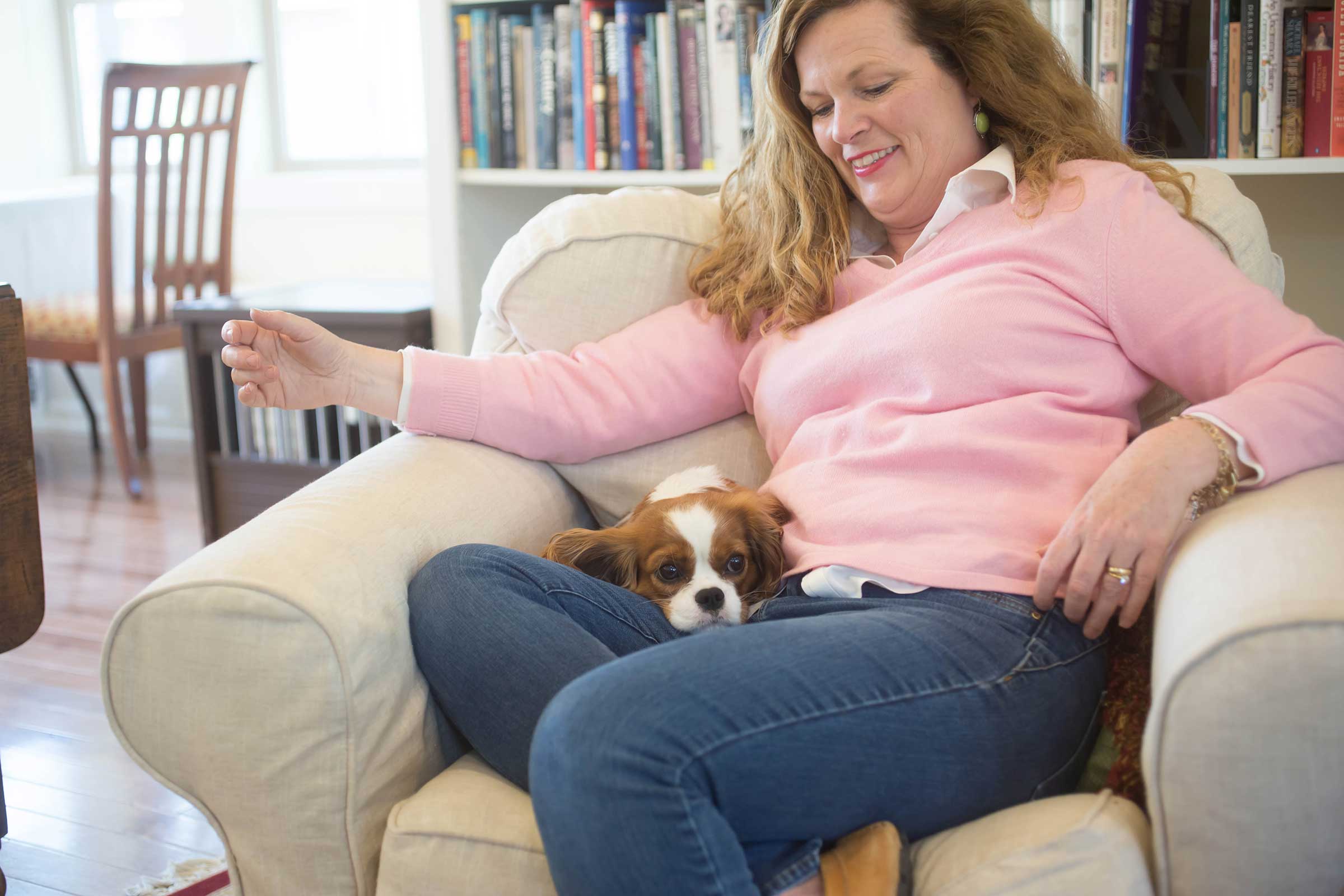This post may contain affiliate links. Full disclosure policy

For me, Christmas really is the most wonderful time of the year. However, as the years have passed the way we celebrate and incorporate Christmas traditions have changed.
THAT WAS THEN
My husband and I married in late August. One of the first things I did after returning from our honeymoon was to begin establishing Christmas traditions for our new family that would be quite different than my husband’s approach to the holiday. To start with, there would be presents. Lots of them.
My husband is an only child, surrounded by a handful of mostly unmarried cousins who are also only children. The only gifting he did was for his mother. Every Christmas, he sent her a card with a check. And she sent him? You guessed it, a card with a check. I put an end to that right away. I called up my mother-in-law, asked her what color her bathroom was, and bought her a set of fluffy new yellow towels. (She loved them, by the way.)
My husband conceded, a little grudgingly, that this was somewhat more in line with the spirit of the season. But his jaw dropped when I showed him the Christmas list for my relatives, all of whom were now his relatives too. I have six sisters, countless nieces and nephews, as well as aunts, uncles, cousins, and parents. Oh, and then there were neighbors and friends.
“We can’t afford to give presents to these people!” he protested. Of course, he was right. We were newlyweds and basically broke. So I made 52 jars of strawberry jam and Christmas was saved. I also put up a tree and purchased a single, absolutely enormous wreath that I saw in the window of a florist shop. These were the only decorations we had in that first year of marriage.
As time went on and our family expanded, so did our Christmas traditions. The weekend after Thanksgiving, we would choose our tree and decorate it as Christmas music played on the stereo. Next, we’d decorate the house. There were creches, candles, wreaths, music boxes, quilted table runners, Christmas throw pillows, and a toy train set under the tree. Our decorations grew to about five wardrobe-sized boxes. And that didn’t even count the fresh greens for the mantles and tables.
In addition to presents for family and friends, there were stockings for the children and any guests in residence. Christmas Eve dinner was simple but filling – a big bowl of stew or soup with bread, salad, and Christmas cookies. We would go to church as a family, usually to a candlelight vigil. Every child was allowed to open one gift before bed.
On Christmas morning, I would rise before the sun and go by myself to a sunrise service, then return home to serve a huge holiday breakfast to my family. After breakfast, stockings and presents were opened and enjoyed. Around noon, I would start cooking our usual Christmas menu – prime rib with all the trimmings, plus vegetables and plenty of homemade pie. There was music, and food, and gifts, and laughter, and happy chaos. At the end of the day, I’d drop into bed, exhausted, grateful, and content. It was wonderful.
Then, of course, things changed. They always do.
My boys grew up. They met wonderful women and started families of their own in faraway cities, too far away to allow us all to gather on holidays. I was happy that my boys were happy and thrilled they had found such wonderful life partners. This was my dream for them. But seeing the Christmas traditions I had taken such joy in begin to crumble was very, very hard.
TIME TO HIT THE RESET BUTTON
A few years back, when my Christmas day ended in tears, I knew that something had to change and that something was me.
Oh, how I cherish the memories of those family Christmas celebrations past! That was a wonderful season for life for me and my family. But time marches on, and life seasons change. If we fail to adapt to those changes and cling stubbornly to the past, we are bound to become disappointed, sad, or even bitter. And that is no way to spend Christmas!
On the morning after that teary Christmas, I decided to do a total reset of our holiday traditions and my expectations of what Christmas should be. “I don’t care what we do next Christmas,” I told my husband. “As long as it isn’t anything like what we’ve done in the past.”
My husband agreed. The next year, we rented a condo in Hawaii during Christmas. My mother and our youngest son joined us. There were rules about presents; only two per person, nothing over $25, and small enough to fit in a suitcase. The only decoration was a paper cutout of a Christmas tree I had brought in my luggage. We went to a Christmas Eve service at a nearby hotel. For Christmas dinner, we grilled steaks on the barbeque, accompanied by a caesar salad, some baked potatoes, and a pie I’d bought from the store. After dinner, we watched a football game and went for a swim in the pool.
It was a very, very different kind of Christmas. And it was fun!
The memories of that Hawaiian Christmas were just as precious to me as those I collected when my kids were little. And it taught me a valuable lesson. Establishing family traditions is important, but as our families change, our traditions need to change as well.
At this stage of our lives, my husband and I approach every holiday with open minds and hearts. Sometimes, we spend Christmas with one of our children and immerse ourselves in their traditions. Sometimes we stay at home, just the two of us. Sometimes we invite friends to spend Christmas with us. Sometimes we go to a nice resort.
It’s different every year, and that’s okay. The thing that hasn’t changed for me is what Christmas means – the celebration of my faith, the awe I feel when I reflect on the love of God. God came to earth as a little child, to heal our broken relationships and restore all things to himself. In fact, as my expectations surrounding the trappings of Christmas have decreased, the joy I take in the sacred aspects of Christmas have deepened.
Whether your traditions focus on the sacred, the secular, or some combination thereof, joyfully celebrating an empty nest Christmas requires an openness to new traditions. If you’re struggling at the thought of an empty nest Christmas, perhaps it’s time for you to do a reset on your holiday traditions.
Here are some ideas for how to do that.
MAKING SPACE FOR NEW EXPERIENCES
For me, resetting my expectations of what Christmas should be meant totally upending our set-in-stone traditions. Traveling all the way to Hawaii may not be an option for your family, but there are so many wonderful places to spend the holidays. What about Christmas at the beach? Or the mountains? Or at a lake? If you have access to an RV perhaps a camping Christmas could be in your future?
Wherever you go, celebrating your empty nest Christmas in a new setting can be a wonderful way to start letting go of old expectations and establish new traditions.
MAKING SPACE FOR HOSPITALITY
If your family lives far away, Christmas can be a lonely time. The solution to that loneliness is simple; extend a hand of hospitality to others in the same boat. This doesn’t need to be complicated or expensive. Invite others facing an empty nest Christmas to your home for a Christmas Day potluck dinner or a Christmas Eve dessert feast. How about a cookie exchange? Or an old-fashioned Christmas caroling party with hot cider and cookies afterward? In my book, that tradition is definitely ripe for a comeback!
MAKING SPACE FOR THE SACRED
As I explained above, my personal celebrations of Christmas have shifted more toward the sacred than the secular. My empty nest Christmas now includes more intense as well as intentional prayers and devotions during Advent. We still decorate for Christmas, though perhaps not as extensively as in the past. However, a few years back we added an Advent wreath to our decorations in an easy DIY you can try for yourself here. The daily ceremony of prayer and lighting the Advent candles has added a beautiful, more meaningful dimension to the holidays.
MAKING SPACE FOR SERVICE
Serving others during the holidays is a fantastic, joyous way to hit the reset button on the empty nest Christmas! Look for options to prepare or serve Christmas dinner for those who are less fortunate. Pick a name from a local angel tree and have fun buying gifts for a needy child or senior citizen in your community. If finances don’t allow you to buy gifts for others, consider volunteering to help wrap or deliver the gifts that others have donated. There’s no better way to experience that warm, fuzzy holiday glow than by helping others.
MAKING SPACE FOR THE NEXT GENERATION
Sometimes, enjoying the empty next Christmas means letting go of your role as mistress of ceremonies and handing the turkey baster on to the next generation. If your children live near and invite you to Christmas, go out of your way to be a gracious guest. Don’t insist on doing Christmas your way. Stand back a bit but always be ready to lend a helping hand. Allow your children to develop their own traditions and be a happy participant in them when invited.
Seeing your children grow and develop their own family traditions is a gift to be grateful for.
STILL THE MOST WONDERFUL TIME
Sometimes, celebrating an empty nest Christmas requires us to reset long-held traditions and expectations. But if you embrace this new season of life with creativity and flexibility, open minds and open hearts, you’ll discover that Christmas is still the most wonderful time of the year.



